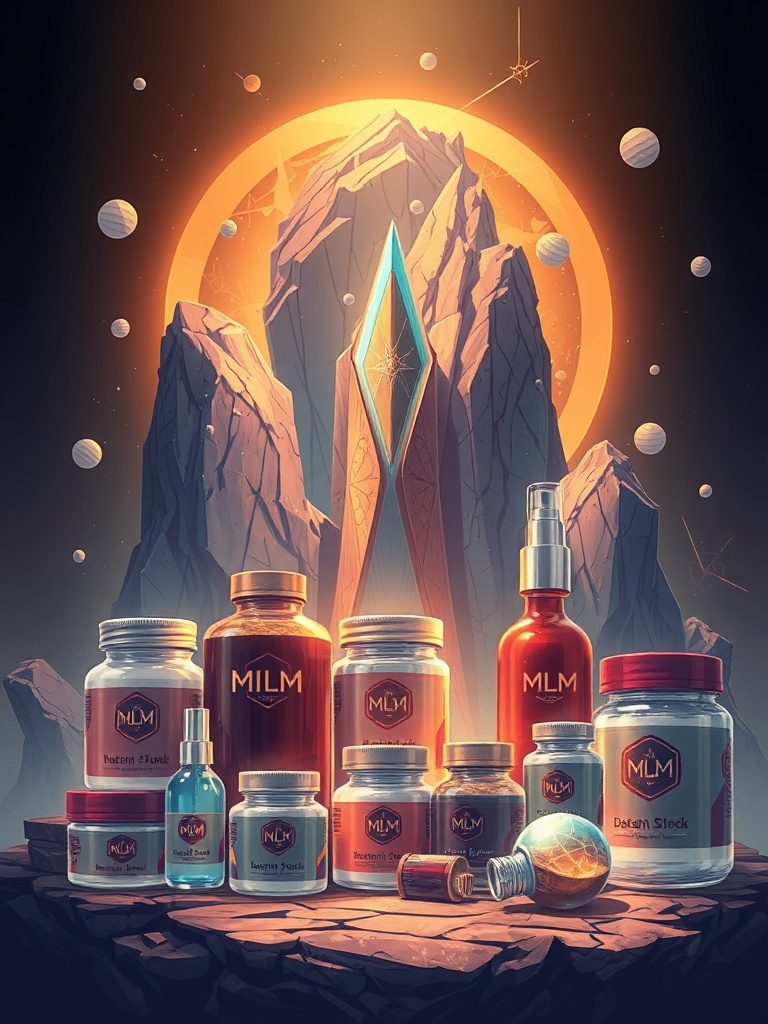MLM Products: What to Look For and How to Separate Hype from Value
Multi-level marketing companies often build communities around products—wellness supplements, skincare, essential oils, household cleaners, and more. The product line is the foundation of any reputable network-marketing business, so knowing how to evaluate those offerings helps both buyers and potential sellers make smarter choices.
Why product quality matters
Products do the selling when you’re not in front of a customer. High-quality, differentiated items make recruitment easier, reduce returns, and create repeat buyers. Conversely, overpriced or low-efficacy products increase churn and damage reputations fast.
Look beyond the pitch and focus on real performance, clear labeling, and straightforward policies.
Key signs of a strong MLM product

– Ingredient and manufacturing transparency: Reliable brands publish full ingredient lists and explain sourcing. Look for manufacturers that adhere to recognized manufacturing standards and provide access to batch or third-party lab testing for purity and potency.
– Evidence of efficacy: Clinical trials, consumer studies, or published data supporting claims should be available or summarized. Avoid products that rely solely on anecdote or exaggerated promises.
– Fair pricing and value: Compare the product’s retail price to similar items on the open market. A good MLM product offers a price-to-value ratio that makes it attractive even without earning commissions.
– Clear labeling and compliant claims: Products should avoid unapproved medical claims. Marketing that promises cures, prevents disease, or guarantees specific results is a red flag.
– Return policy and autoship transparency: Many companies use subscription models to boost lifetime value. Make sure returns, cancellations, and billing for autoship are simple and clearly explained.
– Independent social proof: Real reviews on third-party sites, professional endorsements, or independent content creators with a history of honest reviews are more trustworthy than curated testimonials alone.
Current product trends shaping the industry
Wellness remains a leading category, but buyers increasingly expect clean-label formulations (minimal additives, transparent sourcing), sustainable packaging, and cruelty-free or vegan certification where applicable. Personalized and hybrid products—customized skincare regimens, targeted supplements based on lifestyle—are gaining traction. Digital-first presentation (live stream demos, shoppable social posts, and educational content) dominates the way products reach consumers.
Marketing and compliance realities
Successful MLM product strategies combine product credibility with modern marketing: SEO-driven content, social commerce, micro-influencer partnerships, and community-driven storytelling. However, there’s heightened regulatory attention on income claims and unverified health claims. Disclosures for sponsored posts and clear earnings statements are becoming standard practice. Ethical promoters avoid guaranteeing income or overstating outcomes.
Practical tips for buyers and prospective distributors
– Request lab results or certificates of analysis for supplements and topicals.
– Try a one-time purchase before subscribing or committing to inventory.
– Read the fine print on autoship, cancellation windows, and return policies.
– Compare ingredient lists and prices with mainstream brands.
– Check third-party reviews and watch for consistent complaints about efficacy or billing.
– Ask for documented studies or trial summaries when products claim significant health benefits.
Choosing products that deliver real value creates momentum. Whether you’re shopping for yourself or considering building a business around an MLM brand, prioritize transparency, measurable results, and honest marketing. Those priorities protect customers and make sustainable growth far more likely.